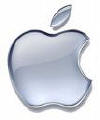Getting rid of an old computer is a huge problem people face
when their old systems slow down or just plain ol' break.
That's especially true now more users decide to buy
computers running Vista and even more so, with the campaign
of Apple's Macbook Pro, which can run Windows. But
what do you do with the old PCs? And even further, what
happens to the equipment once its there? What happens to
your private data?
If you are green (or looking for recycling option) of your
old equipment - PCs, monitors, printers, scanners, etc...
you might feel comfortable just dropping this stuff off @
your nearest drop-off spot. But surprisingly, most big-name
computer manufacturers offer their own recycling programs,
some of which come right to your door.
Each company has its own methods, which makes the process
more confusing for consumers. Some take old computers away,
but charge you around $30 for the shipping and handling.
Other will reward you for buying one of their systems by
offering to remove your old system free. Below, you'll find
some general guidelines for getting your equipment out of
your house.

Dell offers home pickup - FREE. They will also pickup
any brand of computer or printer
with the purchase of a new Dell product. Details can be
found at
www.dell.com/recycling

Hewlett-Packard's procedures are a bit more complicated.
At anytime, the company offers to pick up and recycle your
old equipment, regardless of brand, but charges $13 to $34
per product for shipping and handling. You will be
compensated for each product with a $30 to $50 coupon to be
used at
www.hpshopping.com, where you can buy products from H-P.
Recycling details for H-P can be found at
www.hp.com/recycle.

Lenovo's ThinkPlus Recycling Service offers prepaid
shipping labels for $30 each to be used for sending any
manufacturer's old system, monitor, printer and peripherals
to
Lenovo
for recycling or refurbishment.
Lenovo
doesn't offer a home pick-up service. Once received,
Lenovo
uses a designated center to recycle your materials
and sends reusable equipment to Gifts In Kind International,
a charity specializing in product philanthropy.

Apple is different still. Like
Lenovo
, it doesn't offer home pick-up but will receive all
brands so long as you buy a $30 shipping label from the
company's Web site. With the purchase of any new Mac through
Apple's Web site or at one of its retail stores, you'll receive
an email with instructions and shipping codes for up to two
prepaid boxes. These can be used for shipping any old equipment,
regardless of manufacturer, to Apple for recycling. Details can
be found at:
http://www.apple.com/environment/recycling/program.
Apple's
retail stores will accept all manufacturers' rechargeable
batteries as part of a program run by the Rechargeable Battery
Recycling Corp., a nonprofit organization. These stores also
accept unwanted iPods for recycling and take 10% off the
purchase of a new iPod in exchange for your old one.
What about my data?
When recycling, almost all companies vow to
mechanically shred your hard drive. But they also suggest that
you take responsibility for your data and delete them to be
safe.
Various software programs let you clear out
your hard disk on your own. Symantec's Wipe Info in Norton
Utilities and System Works (http://symantec.com)
will help on Windows PCs and Macs. Webroot Software Inc.'s
Window Washer (http://www.webroot.com)
is another option for Windows, and Jiiva Inc.'s SuperScrubber (http://www.jiiva.com)
is an alternative for Macs. I haven't tested these programs, and
there are many others that do the same thing.
What happens to my computer?
Generally speaking, after your computer is sent
to a recycling plant, it is disassembled and its materials are
separated, melted down and reused. H-P, which has been recycling
computers since 1987, says it will have collected and recycled
one billion pounds of used products by the end of this year. The
company uses some materials over again in its own products, such
as plastics that are melted down, combined with plastics from
recycled water bottles and used to make one of H-P's scanners.
Recycling alternatives
Plenty of other groups, such as the National
Cristina Foundation (http://www.cristina.org)
and Share the Technology (http://sharetechnology.org)
specialize in distributing reusable computers to people or
organizations in need of computers.
For the most part, the best systems for reuse
are those that are less than five years old. A good rule of
thumb is to donate your computer as soon as possible, so you
don't forget about it before it becomes outdated.
Microsoft specializes in PC refurbishment by
partnering with TechSoup, a tech nonprofit, and by labeling
groups as Microsoft Authorized Refurbishers. These groups, which
are located around the world, receive low-cost software licenses
so they can install Windows and Office programs on refurbished
computers for distribution to low-income families, nonprofit and
educational institutions. In the U.S. alone, over 100,000
licenses have been supplied to 400 such groups. A list of them
can be found here:
http://www.microsoft.com/mar.
With Earth Day coming on April 22nd and "going
green" becoming a fashionable proclamation, you're sure to find
more and more options for recycling your computer or sending it
away to someone who can refurbish it. One way or another, your
old computer can be used for much more than gathering dust in a
basement corner.